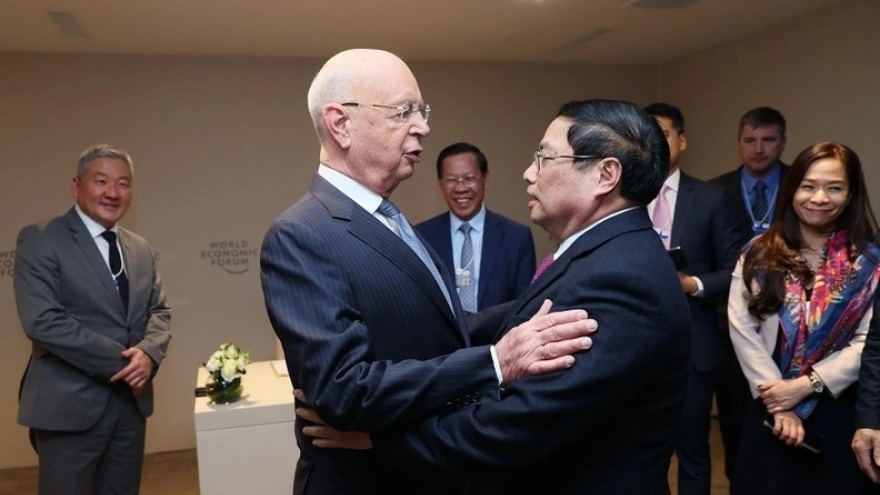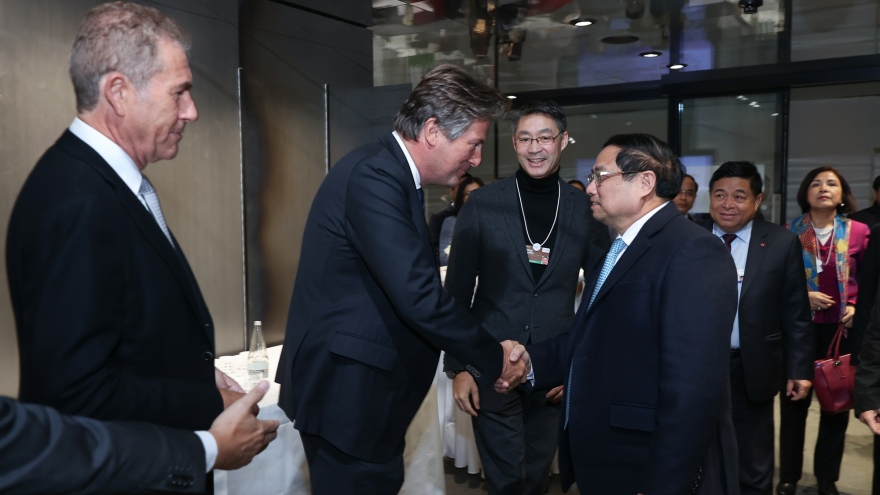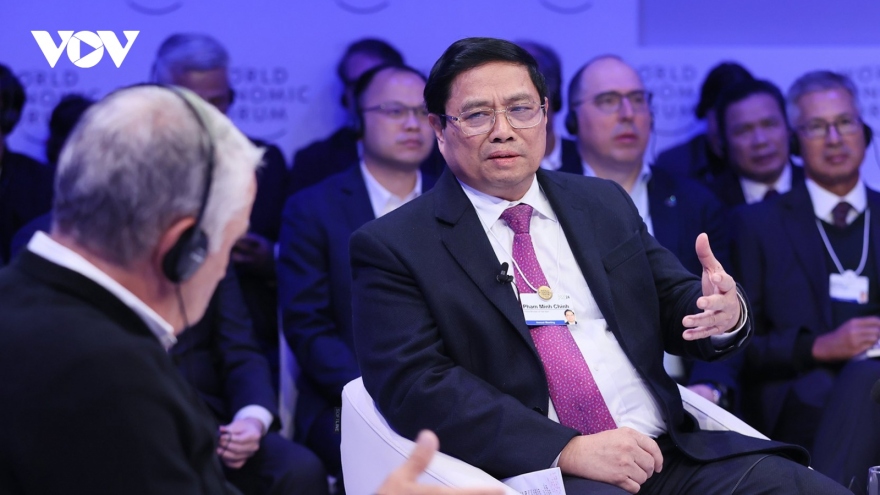Vietnam shares lessons drawn from ASEAN experience at WEF-54
VOV.VN - Vietnamese Prime Minister Pham Minh Chinh discussed lessons drawn from ASEAN’s experience as the region gains ground amid a precarious geo-economic environment, during at a panel discussion as part of the 54th annual meeting of the World Economic Forum (WEF-54) in Davos, Switzerland, on January 17.
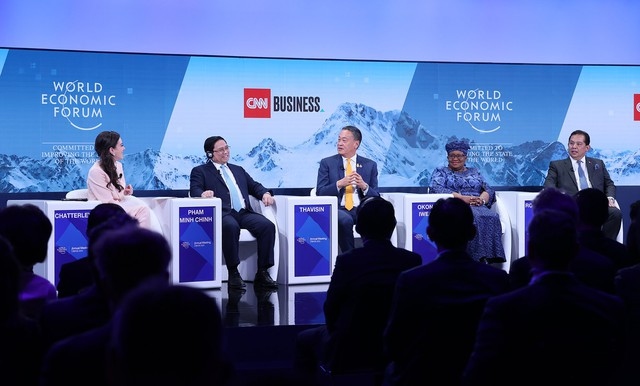
Other keynote speakers were Thai Prime Minister Srettha Thavisin, Philippine House of Representatives Speaker Ferdinand Martin G. Romualdez, and World Trade Organization Director General Ngozi Okonjo-Iweala.
The leaders discussed the central role of ASEAN and each ASEAN member country in taking advantage of the opportunities from shifting global supply chains, development trends, and behaviour in economic relations with major countries.
They said that ASEAN has become an exemplary role model of regional economic integration, thanks to joint efforts of member countries in promoting intra-bloc economic cooperation and exchanges on trade in goods, services and investment, gradually moving towards forming a common market and common production platform. The bloc has been actively integrating into the global economy through bilateral free trade agreements with partners as well as the regional comprehensive economic partnership (RCEP) agreement.
In addition, ASEAN has built solid trust among member countries, overcoming economic, political, and cultural differences to become a cooperative bloc for prosperity.
WTO Director General Ngozi Okonjo-Iweala said that ASEAN has a friendly investment environment and is a destination where investors and partners benefit from each other. Accordingly, the supply chain is decentralizing towards a number of ASEAN countries, as part of the re-globalization process. She took Vietnam as an example, saying it is a typical destination as evidenced in its dynamic development and success stories. Such process has benefitted not only one or a few countries, but the whole world.
Sharing the view, Vietnamese Prime Minister Pham Minh Chinh emphasized three important factors behind ASEAN’s current development gains. They are solidarity in diversity, promoting self-reliance of the bloc and each country, and pursuing inclusive and comprehensive development, taking people as the driving force of development.
According to the PM, each ASEAN member country on the one hand contributes to the common development of ASEAN, and on the other hand promotes their distinct potential, outstanding opportunities, competitive advantages and capabilities, while ensuring compliance with competition and the market law of supply and demand.
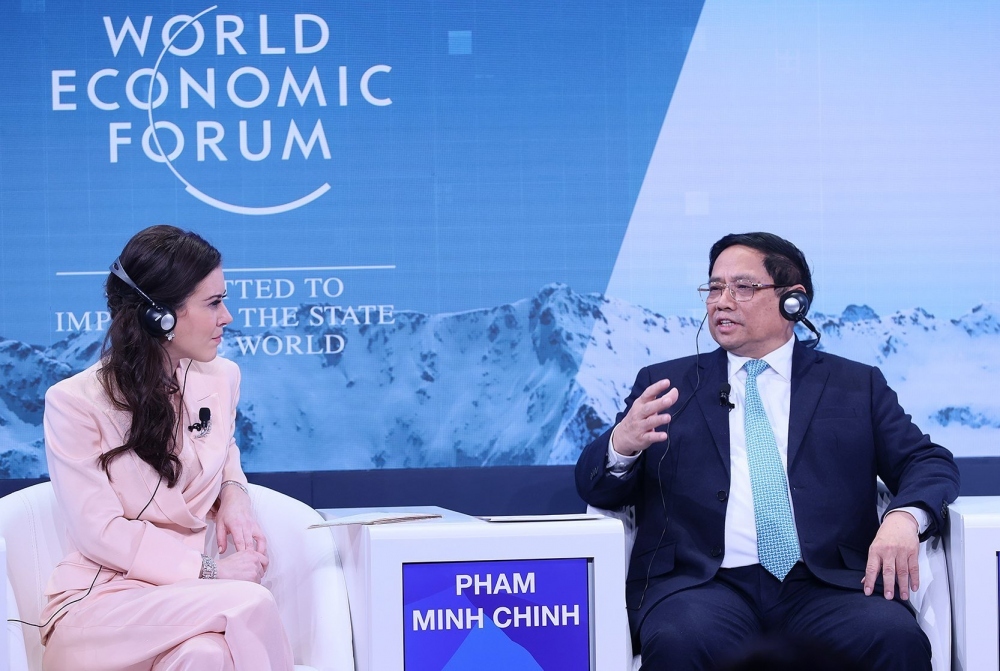
In his opinion, the process of shifting supply chains is an inevitable trend based on the competition law and the market law of supply and demand. Only when countries choose a win-win approach, respect their individual choice, and build trust based on sincerity, solidarity and balance of interests, can they maintain sustainable development.
With regard to digital transformation, Chinh affirmed that the digital economy needs to be associated with the green economy, with mutual support and interaction. This process must be implemented according to a roadmap and with steps appropriate to the capacity of each country, taking into account vulnerable groups in society. He reminded that rapid and sustainable development is a must, but it cannot be done by sacrificing social justice and security.
The Vietnamese Prime Minister affirmed that in the next 5-10 years ASEAN will be a united, unified bloc and the growth center of the world economy where all economies develop altogether without anyone being left behind.
Other speakers highly appreciated Vietnam’s responsible role in building ASEAN solidarity and settling regional and global issues. They concurred with the Vietnamese leader’s views on how to take advantage of opportunities and handle challenges in ASEAN’s integration and win-win cooperation process, as well as to maintain an objective and fair approach, and promote the bloc’s central role in contributing to globalization.

